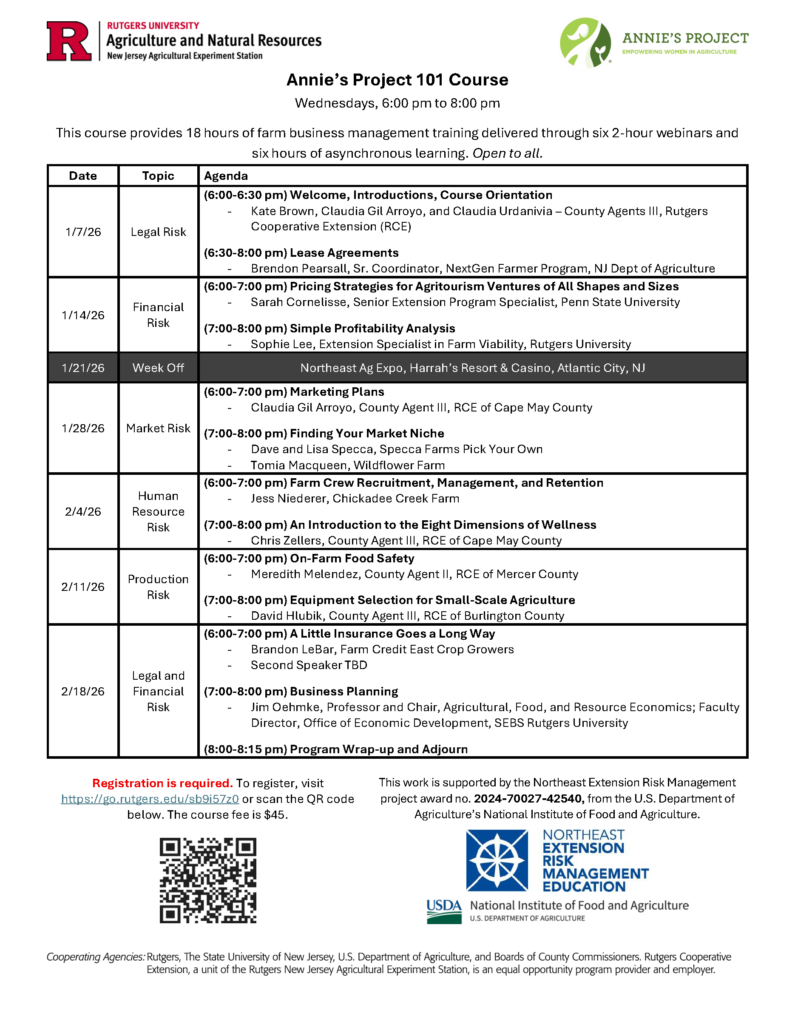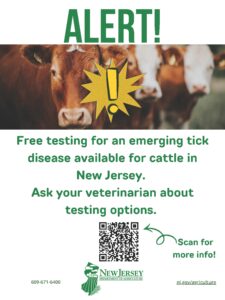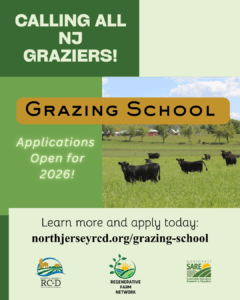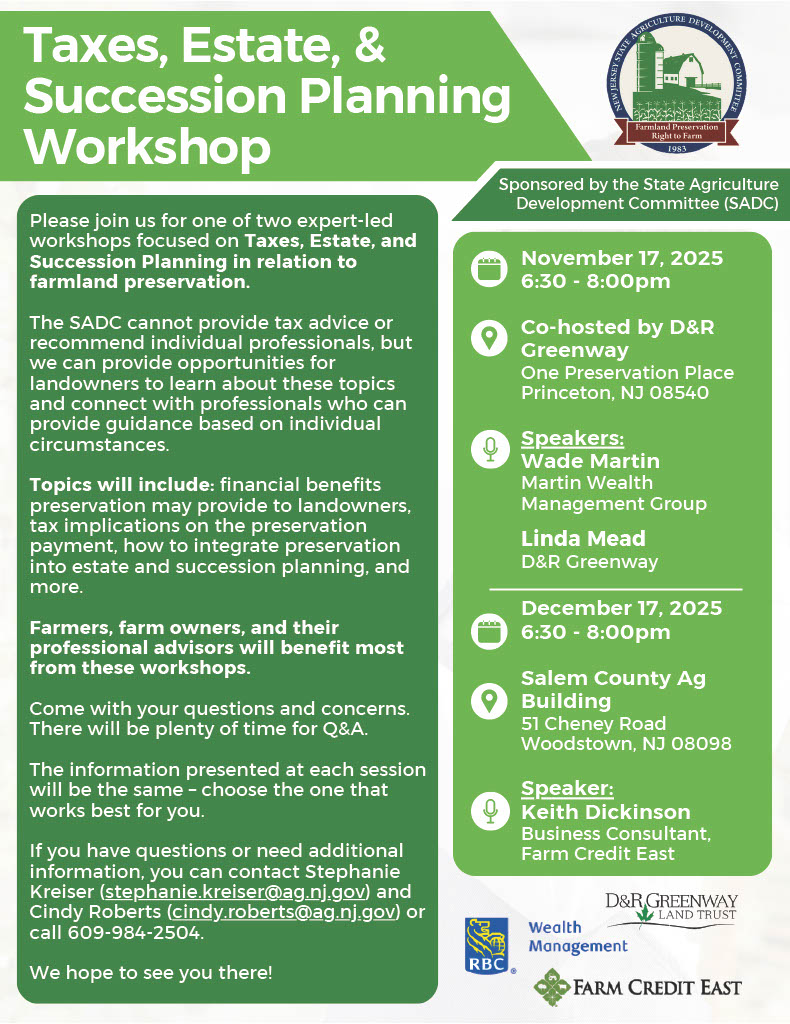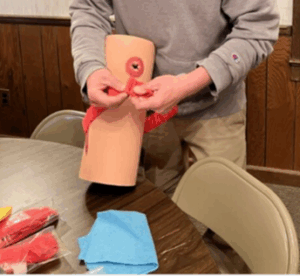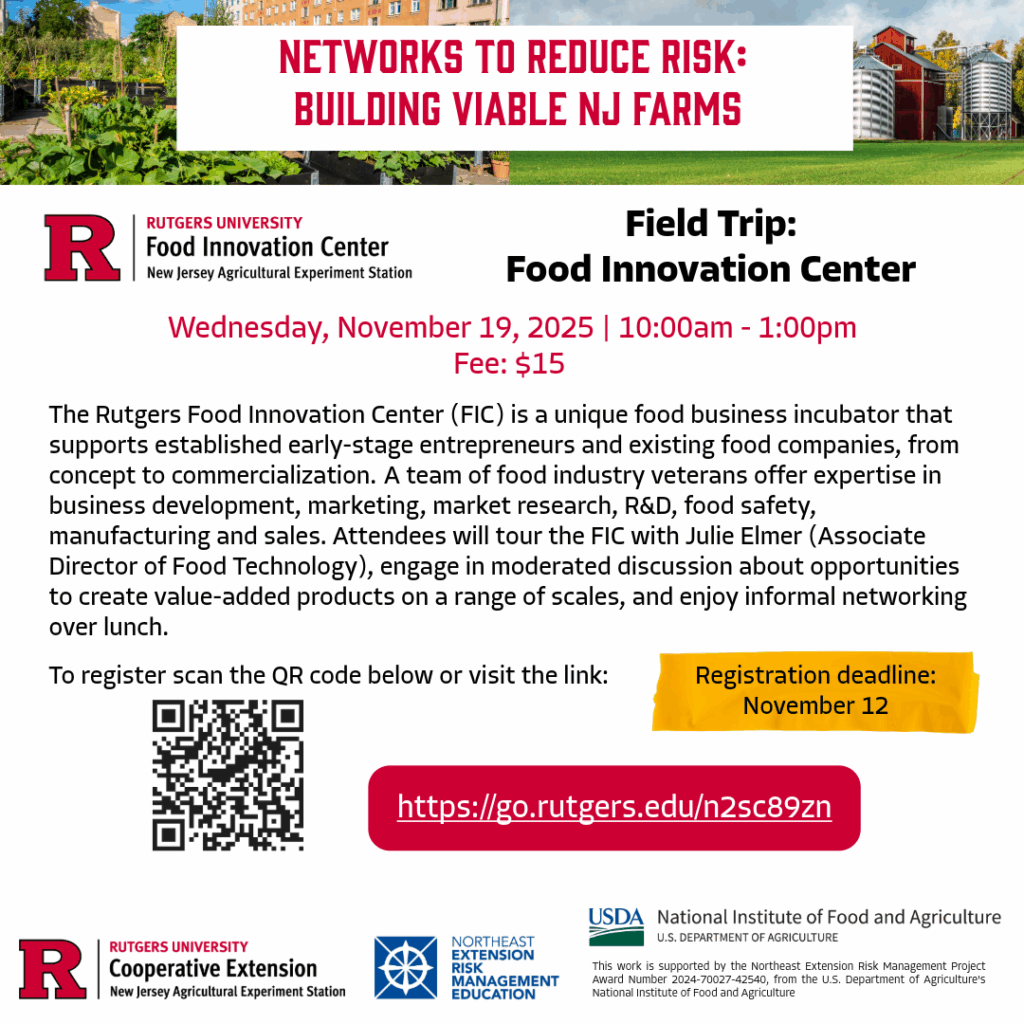Empowering Farmers Through Knowledge: Annie’s Project 101 Launches in January 2026
As agriculture continues to evolve, so do the challenges and opportunities faced by farmers—especially women and beginning farmers. That’s why we’re excited to announce the launch of the Annie’s Project 101 Course, a comprehensive farm business management training series kicking off in January 2026.
Hosted by Rutgers Cooperative Extension and supported by the Northeast Extension Risk Management Education Project, this six-week webinar series is designed to equip farmers with the tools they need to thrive in today’s dynamic agricultural landscape.
📅 Course Overview
- Dates: Wednesdays, January 7 – February 18, 2026
- Time: 6:00 PM – 8:00 PM
- Format: Live webinars + asynchronous learning
- Fee: $45
- Registration: Click here to register
🎓 What You’ll Learn
Each session focuses on a key area of farm risk management, featuring expert-led presentations and practical strategies:
- Legal Risk (Jan 7): Lease agreements and legal foundations for farm operations
- Financial Risk (Jan 14): Agritourism pricing and profitability analysis
- Market Risk (Jan 28): Marketing plans and niche development
- Human Resource Risk (Feb 4): Farm crew management and wellness strategies
- Production Risk (Feb 11): Food safety and equipment selection
- Legal & Financial Risk Wrap-Up (Feb 18): Insurance and business planning essentials
🧭 Special Note
There will be no webinar on January 21 to allow participants to attend the Northeast Ag Expo at Harrah’s Resort & Casino in Atlantic City, NJ.
Whether you’re a beginning farmer, a seasoned producer, or someone exploring agribusiness, Annie’s Project 101 offers valuable insights and connections to help you grow your farm with confidence.
📌 Don’t miss out—register today and invest in your farm’s future!
#AnnieProject101 #FarmBusiness #WomenInAg #RutgersExtension #AgWebinarSeries #FarmSmart
